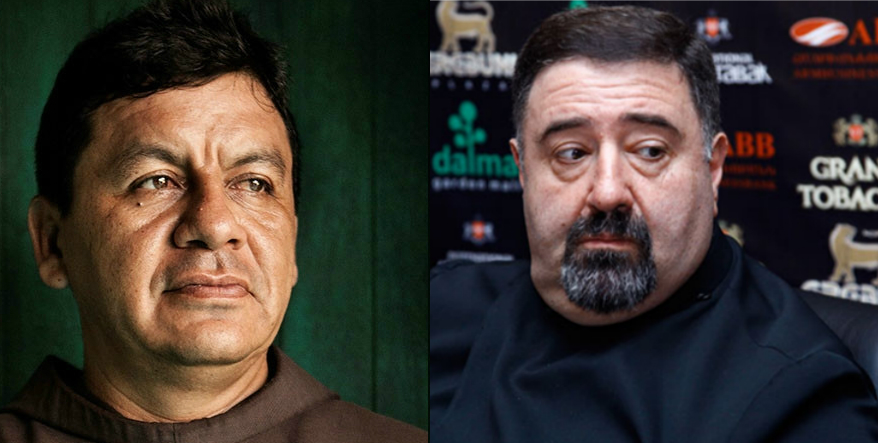Our interlocutor is Boris Navasardyan, President of the Yerevan Press Club
Q: Mr. Navasardyan, the turbulent events that have taken place in and around Armenia in recent years seem to have pushed back, if not forgotten, the problems of the minorities living in the country.
A: The reasons are clear for us. It is conditioned by a rather sharp internal political struggle, COVID, war, post-war crisis. The active part of the society is more interested in the immediate challenges, which are important for the whole society, but this does not mean that the state should not continue to deal with the rights of all minorities at the institutional level. The decrease in the activity of the society in that direction does not release the state from the function of fulfilling its responsibilities and mission “at the legislative level”, ie from implementing the policy, that is, to present to the society the principles that should be accepted in a civilized democratic society.
Q: And to what extent is the state fulfilling its mission now?
A: In that sense, we see serious shortcomings. Somewhere our political authorities are following the public mood and thus they avoid discussing issues that could hit their popularity. In other words, they are not policy makers, but obeying to politics, and this is not acceptable behavior in the case of any responsible institution, especially the state or the government.
Q: The LGBTI + community has always been the most vulnerable among the minorities, when Nikol Pashinyan’s political team came to power, he announced that these people, yes, exist. What has changed now?
A: When political actors are at the peak of their popularity, they are ready to say things that may be challenging for some part of our society, but when legitimacy, when the level of public acceptance decreases, they start to follow public mood, and avoid making statement that would threaten their strength of their power and rating.
Q: Can we conclude that this government will not try to solve the problems of minorities, including LGBTI + people, on its own initiative, as it is obvious that the rating of the ruling party is declining over time? Another question is – in what way should the community remind itself and of the existence of its problems, when the public-political discourse is mainly about fatal security issues.
A: I would like to mention again that the state has an obligation to deal with all issues of public importance; if it does, platforms will be formed where different groups, including those dealing with LGBTI + human rights, will be able to enter into a dialogue with the authorities, to come up with initiatives, to put forward some ideas for policy development, and its possibility is conditioned by the interest of state structures. In other words, it is impossible to start a serious process if there is not enough state attention to your problems and in this case, I think that the state should be confronted with the need by all possible means to deal with the existing problems that need to be solved.
Q: And how and who should put the state in front of that need?
A: First of all, it is the human rights community, the non-governmental organizations, which have been quite active in human rights issues in Armenia over the years. Now, unfortunately, that activity has decreased, which is also due to the lack of unity, that is, different NGOs seem to be divided into different camps. In some cases, unfortunately, this division is conditioned by political preferences, something which should not exist in civil society. In some cases, I see a tendency to imitate activism rather than real problems. This shows that there is an observable level of crisis in the human rights community and civil society.
Q: What is the role of the media at this stage, can they play a role in raising and solving the problems of LGBTI + people?
A: We must state that the media as a sector is mainly a business. We can say that the media also has certain public responsibilities, but first and foremost they do business, they primarily do business and are engaged in expanding their audience and their own initiative, the media, is unlikely to cover issues that do not contribute to commercial success or solve trade problems. That is the reason why it is necessary for the state to implement an information policy, and for the civil society structures to be active in the public sphere. If this is the case, if they work properly with the media, then we will see enough coverage of minority issues in the media, and if this initiative is not or is not enough by the civil society, the state, then we should not expect the media to pay adequate attention to the issue.
Q: You are talking about the initiative of the state and here we should note that the former authorities were not keen in taling about the LGBTQI+ issues, however, in 2017, a number of legislative initiatives and changes were discussed in the socio-political field, and issues of the community were raised, which are now almost unspoken. How was the public discourse filled with other content then?
A: It was conditioned by two circumstances. First, the authorities were interested in deepening relations with international organizations: we can say that this process was obvious in Armenia until 2017. In 2017, already in the pre-election period, the focus on domestic political issues became apparent, at that time the issues of keeping or taking power became a priority for the political elite. Working with international organizations, starting from 2017, we have manifestations of obvious inactiveness. On the other hand, I have already mentioned that we had a well-established human rights community until recent years, a very active civil society, to which I have already presented in detail my assessments of the current situation. All this leads to the fact that, yes, the positive processes that were moving forward with difficulty, but in Armenia, today, in fact, have been ignored or have become victims of general political setting.
Q: Our previous interlocutors, your colleagues, also registered a setback. In your opinion, when will the form and content of the public debate in Armenia return to at least the position it had until the last few years?
A: It is difficult for me to say. I may seem pessimistic, but I do not see such a positive tendency, I see the opposite. The problems that now exist in Armenia-international relations or within the civil society are deepening more and more.
Source: Informed Society Magazine



